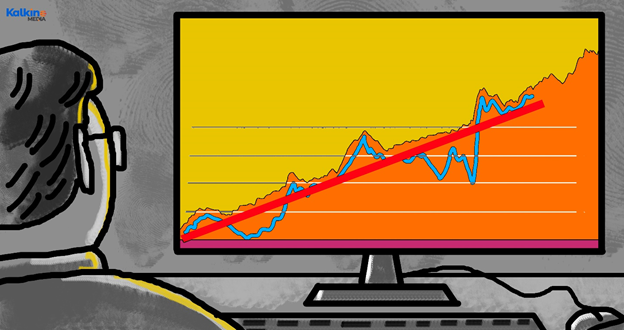Real-time Quote
Updated on 2023-08-29T11:55:53.910852Z
What is a Real-Time Quote (RTQ)?
A real-time quote (RTQs) is a stock quote that exhibits actual price of a security from the exchange at that very moment in time. Quotes are the prices of securities exhibited on various websites and ticker tapes. However, in most cases these are not real-time prices of where the securities are trading but are delayed prices. Unlike real-time quotes, delayed quotes may fall behind the real trading market by between 15 and 20 minutes. A real-time quote shows immediate prices and volume as well as best bid and ask for security with no delay.
It used to be an expensive service but now are increasingly offered for free via online brokerage platforms and it is mostly used by day and high-frequency traders.

Source: Copyright © 2021 Kalkine Media
Understanding a Real-Time Quote
Real-time quote is also known as quote streaming services that are widely offered as a free add-on with many financial websites and online brokerages. However, some service providers may charge an additional fee to gain access to them.
As pricing information of options and other securities are used primarily by the professional traders and businesses, service providers may charge additional fees to access these services.
Why Does a Real-Time Quote Matter?
A Real-Time information that is put out at the right time may help investors to invest in the right price to make profit in the stock market. The Real-time quotes enable informed investors to invest or act quickly. Although obtaining real-time quotes often costs money for a proprietary feed. Information available about the prices of securities in Google or Yahoo is not real-time and may cost day traders and other investors who are anxious about second-by-second changes in prices.

Source: Copyright © 2021 Kalkine Media
How a Real-Time Quote Works
The stock price is an estimate of price or a price at which one party willing to sell or buy a certain amount of shares from the other. A quotes price include bid and ask price and an ask or offer price and is a two-way pricing structure, but the real-time quotes offers more information then bid and ask prices. The asking price is the least price the seller is willing to take for the share. The bid price is what the seller would be receiving for the security and the ask price is what a buyer need to pay for the security.
For example, a Level I quoted price is the real-time bid and ask price for a share listed on the stock exchange or over-the-counter markets. They do not disclose which market makers are bidding or offering the shares.
A Level II quoted price is a set of real-time trading data for shares that include bid and ask price, price of last trade, the high price for the day, quote size. Size of last trade, the low price for the day and a ranked list of the real-time best bid and ask prices from participating market makers.
A Level III quoted price includes all the above and enables market maker to change offer, bids, and order sizes for securities in which it makes a market and execute orders, send out trade confirmations and change quotes.
Special Considerations
Historically, price quotes arrived through ticker tape which depends on telegraph technology and with time it begins to publish in newspaper and television broadcasts. A broker would physically call down to a stock market and request a quote and then information are then passed to customers on phone. However, the cost of real-time quotes decreased with the rise of Internet-based online trading and soon became prevalent in early 2010s.
Stock markets provide quotes to the public which vary with amount of information available and investor using electronic trading method may receive level I, II or III quotes, but to get additional information the investor needs to pay additional amount as it takes more efforts and technology.
Advantage and Disadvantages of the Real-Time Quotes
- Real-time quotes help investors to be informed with the exact price for a stock they are trading at a moment-to-moment rate. If investor invests on a delayed quote, they could overpay or luckily underpaid for the shares.
- In a volatile market also known as fast market, even real-time quotes can have a hard time keeping up and in this market quotes delayed by 15 to 20 minutes are useless as share prices can rapidly raise or fall by a significant percentage.
Delayed quote often provides enough information for casual investors which are not looking to time the market and also offers a general ballpark were shares and indexes are, and whether they are trending up or down.
- The need for precise and real-time information with the advent ultra-fast high-frequency trading (HFT) and increasingly vital for the people who trade using this method. These investors use sophisticated communication technologies to get ultra-real time information and rely on algorithm to the order of millisecond. It also sends orders which can process immediately in the market.